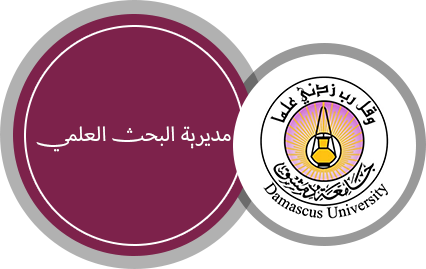| Title |
KAP-COVID GLOBAL: A multinational survey of the levels and determinants of public knowledge, attitudes and practices towards COVID-19 |
| Authors |
Masoud, A.T., Faculty of Medicine, Fayoum University, Fayoum, Egypt; Zaazouee, M.S., Faculty of Medicine, Al-Azhar University, Assiut, Egypt; Elsayed, S.M., Faculty of Medicine, October 6 University, Giza, Egypt; Ragab, K.M., Faculty of Medicine, Minia University, Minia, Egypt; Kamal, E.M., Faculty of Medicine, Fayoum University, Fayoum, Egypt; Alnasser, Y.T., Faculty of Medicine, Damascus University, Damascus, Syrian Arab Republic; Assar, A., Faculty of Medicine, Menoufia University, Shebin El-Kom, Egypt; Nourelden, A.Z., Faculty of Medicine, Al-Azhar University, Cairo, Egypt; Istatiah, L.J., Faculty of Medicine, Fayoum University, Fayoum, Egypt; Abd-Elgawad, M.M., Faculty of Medicine, Fayoum University, Fayoum, Egypt; Abdelsattar, A.T., Faculty of Medicine, Fayoum University, Fayoum, Egypt; Sofy, A.A., Faculty of Medicine, Fayoum University, Fayoum, Egypt; Hegazy, D.G., Global Clinical Scholars Research Training, Harvard Medical School, Boston, MA, United States; Femía, V.Z., Universidade Do Vale Do Sapucaí, Pouso Alegre, Minas Gerais, Brazil; Mendonça, A.R., Universidade Do Vale Do Sapucaí, Pouso Alegre, Minas Gerais, Brazil; Sayed, F.M., Faculty of Medicine, Fayoum University, Fayoum, Egypt; Elmoursi, A., College of Medicine, University of Kentucky, Lexington, KY, United States; Alareidi, A., School of Environmental and Biological Sciences, Rutgers University, New Brunswick, NJ, United States; Abd-Eltawab, A.K., Faculty of Medicine, Fayoum University, Fayoum, Egypt; Abdelmonem, M., Faculty of Medicine, Fayoum University, Fayoum, Egypt; Mohammed, O.M., Faculty of Medicine, Fayoum University, Fayoum, Egypt; Derballa, E.A., Faculty of Medicine, Fayoum University, Fayoum, Egypt; El-Fas, K.A., College of Clinical Pharmacy, King Faisal University, Hofuf, Saudi Arabia; Abdel-Daim, M.M., Faculty of Veterinary Medicine, Suez Canal University, Ismailia, Egypt, College of Science, King Saud University, Riyadh, Saudi Arabia; Abushouk, A.I., Beth Israel Deaconess Medical Center, Harvard Medical School, Boston, MA, United States |
| Source title |
BMJ Open |
| ISSN |
20446055 |
| Q |
Q1 |
| Link |
https://www.scopus.com/inward/record.uri?eid=2-s2.0-85101528775&doi=10.1136%2fbmjopen-2020-043971&partnerID=40&md5=4479d6253acf0a68f9245f08e13822f3 |
| Abstract |
The adherence to public health recommendations to control COVID-19 spread is influenced by public knowledge, attitudes and practices (KAP). We performed this cross-sectional study to assess the levels and determinants of public KAP towards COVID-19 in a large, multinational sample.
Participants: 71 890 individuals from 22 countries.
We formulated a four-section questionnaire in English, followed by validation and translation into seven languages. The questionnaire was distributed (May to June 2020) and each participant received a score for each KAP section.
Overall results, the participants had fair knowledge (mean score: 19.24±3.59) and attitudes (3.72±2.31) and good practices (12.12±1.83) regarding COVID-19. About 92% reported moderate to high compliance with national lockdown. However, significant gaps were observed: only 68.2% knew that infected individuals may be asymptomatic; 45.4% believed that antibiotics are an effective treatment; and 55.4% stated that a vaccine has been developed (at the time of data collection). 71.9% believed or were uncertain that COVID-19 is a global conspiracy; 36.8% and 51% were afraid of contacting doctors and Chinese people, respectively. Further, 66.4% reported the pandemic had moderate to high negative effects on their mental health. Female gender, higher education and urban residents had significantly (p≤0.001) higher knowledge and practice scores. Further, we observed significant correlations between all KAP scores.
Conclusions: Although the public have fair/good knowledge and practices regarding COVID-19, significant gaps should be addressed. Future awareness efforts should target less advantaged groups and future studies should develop new strategies to tackle COVID-19 negative mental health effects.
|
|





